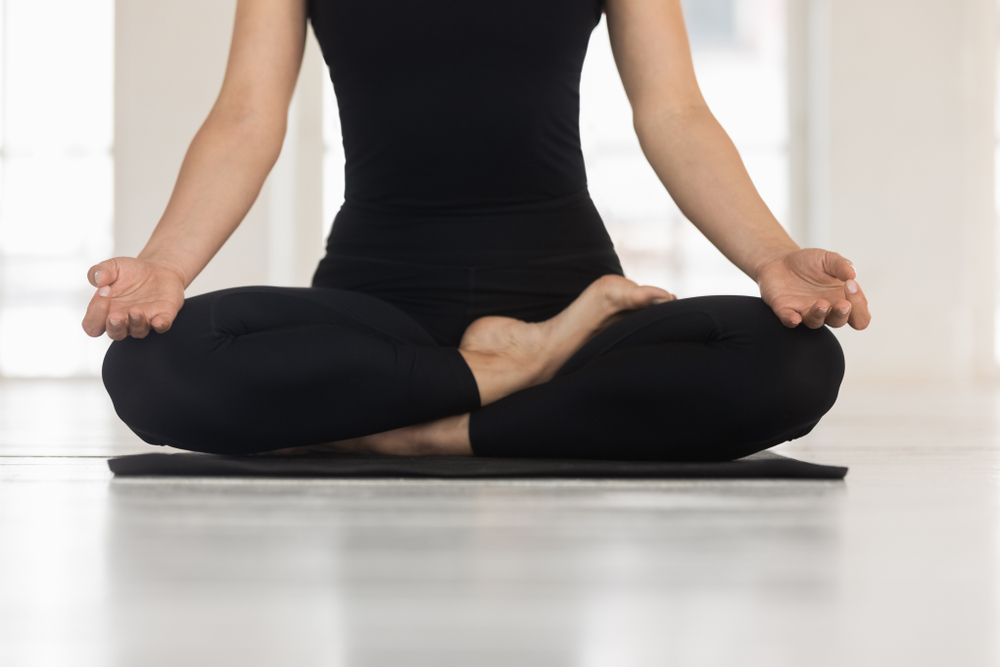Anxiety is an inevitable aspect of life. It’s a side effect of living in a fast-paced environment.
When anxiety becomes a daily occurrence, it’s time to take action before it worsens. Uncontrolled anxiety and depression can have a significant negative influence on your quality of life.
Try out the natural remedies for anxiety and depression below to gain control.
Table of Contents
Anxiety Treatment at Home
Let’s see a wide range of natural remedies for anxiety and depression that can help you live a normal and relaxed life.
1- Stay Active
Regular exercise is beneficial not only to your physical health but also to your mental wellbeing.
According to a research study, people with anxiety disorders who reported a high degree of physical activity were better protected against developing anxiety symptoms.
If you suffer from anxiety, here are some tips to stay active as a natural anxiety treatment at home.
- Try getting out of your chair a few times a day to take a short stroll, stretch, or perform some jumping jacks.
- Instead of driving, walk or ride your bike to work.
- Walking with a buddy or enrolling in a fitness class might also provide some much-needed social interaction.
2- Cut Down Caffeine Intake
Caffeine can boost attentiveness, but it can also imitate anxiety symptoms, and at large doses, it can even cause anxiety.
If you suffer from anxiety, and especially if you see that your morning or afternoon cup is causing you more harm than good, you should reduce your caffeine use.
- Try half-caf or decaf coffee instead of highly caffeinated coffee.
- Herbal teas, which are caffeine-free, are another hot morning beverage choice.
Moreover, reduced caffeine consumption will encourage you to drink more water, which will benefit your physical and mental health.
3- Practice Meditation
One of the other effective natural remedies for anxiety and depression is meditation. Mindfulness meditation, or training your mind to stay present, can assist with anxiety, sleep, and even immune system health.
While regular mindfulness meditation will improve your mood and well-being, practising meditation during a panic attack can also be beneficial.
You may practise mindfulness meditation anywhere, at any time, and you can try out different approaches to determine what works best for you.
How to Meditate?
The most popular types of meditation are as follows:
- Mindfulness meditation
- Focused meditation
- Spiritual meditation
- Progressive relaxation
- Movement meditation
The most popular type of meditation is mindfulness meditation. To meditate mindfully:
1- Close your eyes and breathe deeply.
2- Pay attention to your thoughts as they pass through your mind.
3- Don’t pass judgement on them or get connected with them. Rather, you merely observe them and note any patterns that emerge.

4- Breathing Exercises
A potent tool to anxiety treatment at home is your breathing. Deep breathing has been proved in scientific studies to help people relax by reversing the stress reaction.
When you’re feeling worried, perform some breathing exercises to relieve stress and anxiety. Focus on taking slow, deep breaths through your nose, making sure to use your diaphragm and extend your belly.
5- Avoid Smoking
We all know how harmful smoking is! It not only increases the risk of lung illness, heart disease, and various types of cancer but also might have a negative impact on mental health.
Nicotine is a stimulant, similar to caffeine, and can trigger symptoms akin to anxiety or panic attacks. Studies have linked nicotine to the development and recurrence of anxiety disorders.
Therefore, if you smoke and have anxiety, stopping could help you in a variety of ways.
6- Get A Peaceful Sleep
Next anxiety treatment at home involves prioritising a good night sleep. Sleep has been repeatedly demonstrated to be a key component of good mental health.
How can you prioritise sleep?
- Only sleeping at night when you’re tired
- Avoid reading or watching television in bed
- Stop using your phone, tablet, or computer in bed
- Cutting down caffeine, large meals, and nicotine before bedtime
- Keep your room dark and cool
Also get to know about healthy sleeping positions.
7- Journaling
Writing about your feelings in a notebook can help you process feelings, analyse situations, or simply get things off your chest, which helps alleviate anxiety symptoms.
Journaling can also assist you in identifying cognitive distortions, or patterns of thinking, that may be causing your worry. When you write your thoughts down, you may notice patterns that contribute to anxiety.
Thus, journaling is one of the excellent choices as natural remedies for anxiety and depression.
Make a habit of regularly journaling about your emotions, or take a notepad and write down your thoughts when you’re anxious or upset.
8- Eat Healthy, Stay Healthy
A healthy brain requires a balanced diet rich in fruits, vegetables, whole grains, and lean proteins.
Sugar reduction efforts can also be beneficial – Too much sugar can trigger anxiety by causing your blood sugar to surge and then plummet. Similarly, skipping meals might have negative consequences.
Certain meals can also help with mental health. Foods high in omega-3 fatty acids, zinc, and magnesium, for example, have been demonstrated to reduce anxiety.
Read to know about foods to avoid before sleeping.
9- Manage Your Time
Having too many responsibilities at once makes people become uneasy and anxious. These may include activities involving family, employment, or health.
Keeping worry at bay can be as simple as having a strategy in place for the next important activity. People who use effective time management tactics can focus on one task at a time. Resisting the impulse to multitask, as well as using paper planners and online calendars, can assist.
Breaking down large projects into smaller, more manageable steps can also help some people complete them with less stress making it an effective anxiety treatment at home.
The Bottom Line!
So, if you’re worried, the natural remedies for anxiety and depression mentioned above may help you relax.
Remember that while home remedies can help with anxiety, they are not a substitute for professional aid. Severe anxiety can be treated with therapy or prescription medication. Discuss your concerns with the best psychiatrists near you via Healthwire.pk.
